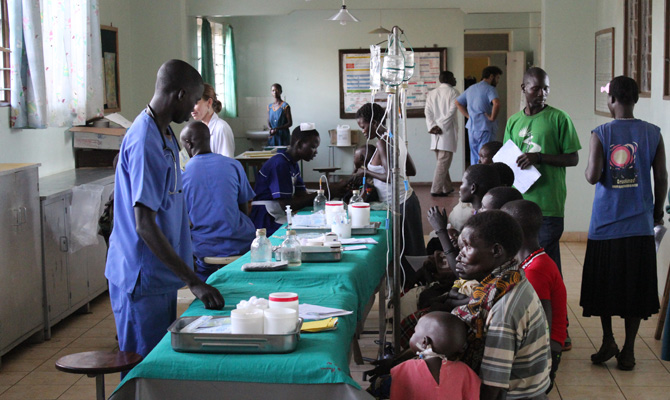In Low- and Middle-Income Countries, direct payments often dominate health care financing and represent a serious obstacle to the achievement of Universal Health Coverage. Out-of-pocket expenditures tend to exacerbate the severity of poverty mainly among the populations who lack adequate financial protection. The article “Estimating causal effects of community health financing via principal stratification” written by Silvia Noirjean, Mario Biggeri, Laura Forastiere, Fabrizia Mealli and Maria Nannini (Statistical Methods & Applications, 2023) shows the consequences of violations of the Exclusion Restriction on which the Instrumental Variables method relies for the impact evaluation of an intervention of Community Health Financing (CHF) implemented in rural Uganda. Findings are of paramount importance for policy-making, as they show sensitisation and awareness raising campaigns alone are extremely effective in reducing vulnerability against health costs.
Interventions of Community Health Financing (CHF) involve the introduction of a prepayment financing mechanism aimed, on the one hand, at enhancing access to health services and, on the other, at protecting individuals from financial catastrophe due to health-related costs. Informal and rural sectors represent the main target of these interventions, where the community is actively involved in the design and management of the financing mechanism.
Several studies analyze the impact of CHF schemes on health expenditures, providing evidence that this model often presents the limitation of not including the most disadvantaged and vulnerable groups. Although the financial protection provided by the scheme is thus not extended to these individuals, promoting principles of prepayment for health financing could make them rethink their health-seeking behaviours and savings practices even if they decide not to enroll. This means that there could be effects of CHF schemes even on those who opt out (“Never Takers”): investigating this possibility is paramount to advance the debate on effective policies for universal health coverage in low and middle income countries.
The intervention of CHF was run in the rural district of Oyam (Uganda) by the international non-governmental organization ‘Doctors with Africa CUAMM’. The financial protection scheme has been implemented in two subcounties, randomly selected out of a total of twelve. Data were collected through a panel households survey conducted in the intervention area and in a third subcounty of the district. Results show that the CHF intervention has positive effects not only on Compliers, i.e. households that would join the scheme upon receiving an initial sensitization and offer to enroll, but also on Never Takers, i.e. households that would refuse to join the scheme despite the initial sensitization and offer to enroll.
The effects for Compliers are associative, meaning that they may derive from the initial sensitization and offer to enroll but also from participating in the scheme, while those for Never Takers are dissociative, meaning that they can only derive from the initial sensitization and offer to enroll. The presence of the latter is ruled out when the Exclusion Restriction is assumed; however, the analysis provides evidence that they do exist. Therefore, principal stratification allows deepening the analysis by taking into account the possibility of causal effects of attending sensitization sessions and receiving the offer to enroll in the CHF scheme.
These analyses have two important implications in terms of policy making. The first is the fact that those that would benefit most from a health insurance do not seem to have the resources needed to take it out. The second is the fact that activities of sensitization alone can be extremely effective to reduce vulnerability against health costs for all population groups (not only enrolled members). The implementation of awareness-raising campaigns has thus potential to significantly contribute to enlarge health coverage and to reduce impoverishment for poor and vulnerable population groups who receive information and are willing to change their behaviours for health financing.
